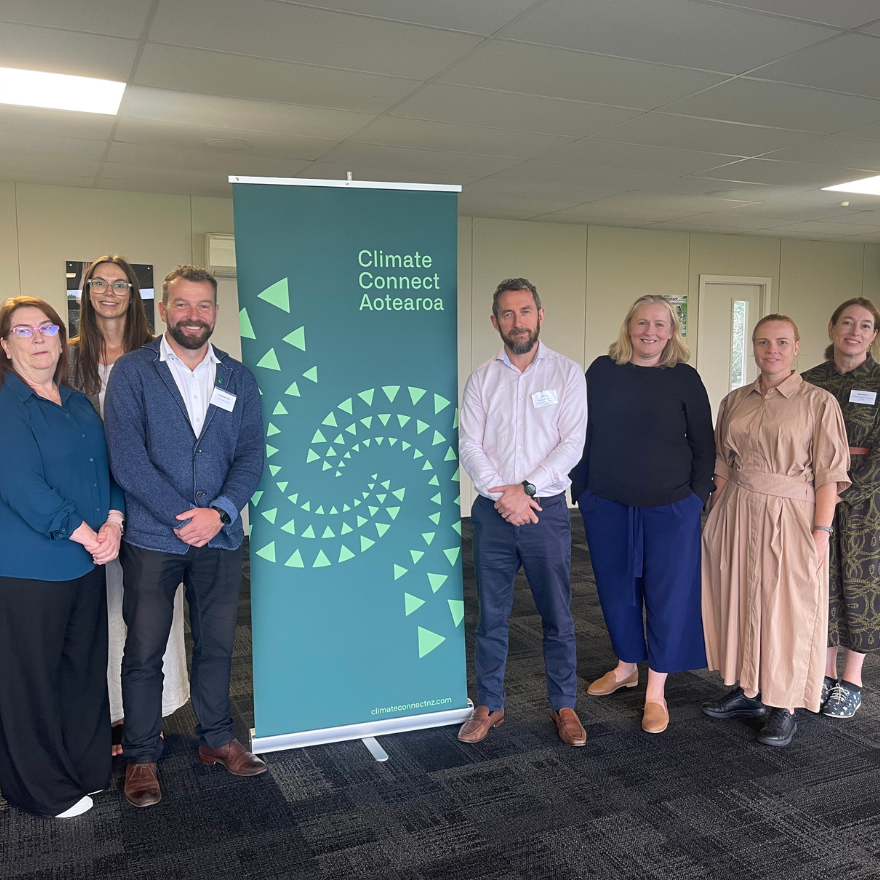In May 2025, some of Tāmaki Makaurau Auckland’s largest industrial energy users, suppliers and stakeholders gathered to understand more about the region’s unique energy profile, and the ideas that government and the energy sector have for reducing emissions from the manufacturing and processing of goods.
The event was hosted by the Electricity Efficiency and Conservation Authority (EECA), with support from Climate Connect Aotearoa and Tātaki Auckland Unlimited.
The session explored local opportunities for industrial decarbonisation and featured the initial findings of EECA’s Regional Energy Transition Accelerator (RETA) for the Auckland region. Here are some of the key insights shared during the event:
Understanding Auckland’s industrial energy use
Specialist engineering consultants Lumen analysed thermal fossil fuel use and emissions across approximately 195 industrial and commercial sites in Auckland. These sites were either using a boiler of 500 kW or more, or producing over 500 tonnes of CO₂-e per year.
Auckland is heavily dependent on piped fossil gas for this process heat. In fact, 97 per cent of the region’s industrial heat requirements are reliant on this fuel. Concerns around gas supply security — including site closure risks, rising costs and operational constraints — are increasingly driving decisions to switch to alternative energy sources.
Impact on the electricity network
To understand the impact on the electricity network, engineers from Ergo Consulting evaluated regional electricity network capacity and constraints. They estimated the potential load on individual substations if process heat users transitioned to electricity.
The analysis found that nearly half of the sites could fully decarbonise by using demand management and heat pump technology. However, for sites that require higher-temperature heat or steam, a different approach is needed. These operators would need to explore switching to electricity or biomass (organic material from plants and animals used as a renewable fuel source).
However, if all high-temperature users switched to electricity, both electrical load and peak demand would increase significantly. This highlights the need for coordinated regional planning, including exploring district heating systems that serve multiple users.
Challenges with biomass supply
Given the role biomass could play in decarbonisation, RETA analysis also assessed the availability of this renewable fuel option. Forme Consultants examined local supplies of wood residues from Auckland forests and found that biomass may only meet part of the region’s needs. Supply is declining, and demand is expected to outstrip it by 2028. Importing biomass from other regions would increase costs, and there are additional barriers such as storage and transport constraints.
Understanding the economic implications
To support informed decision-making, economic modelling by Sapere has been developed to help energy users understand the lifetime costs of decarbonisation. This includes comparing current and future fuel prices, capital costs for equipment (such as heat pumps and boilers), site modifications, and the impact of changing carbon prices.
A coordinated path forward
Together, these findings demonstrate that Auckland now has the data and technical insight to take a coordinated, informed approach to regional decarbonisation. While local barriers remain complex, there is strong support available to help industry make the right decisions at the right time.
Climate Connect Aotearoa is supporting the RETA programme as it aligns with Action EN1 of Te Tāruke-ā-Tāwhiri – Auckland’s Climate Plan, which calls for reducing process heat and industrial emissions through collaboration with government and industry.
The full RETA report for the Auckland region can be found here.

